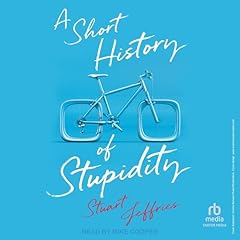
Wordwatching
Field Notes from an Amateur Philologist
No se pudo agregar al carrito
Add to Cart failed.
Error al Agregar a Lista de Deseos.
Error al eliminar de la lista de deseos.
Error al añadir a tu biblioteca
Error al seguir el podcast
Error al dejar de seguir el podcast
 Exclusivo para miembros Prime: ¿Nuevo en Audible? Obtén 2 audiolibros gratis con tu prueba.
Exclusivo para miembros Prime: ¿Nuevo en Audible? Obtén 2 audiolibros gratis con tu prueba.Compra ahora por $25.11
-
Narrado por:
-
James Millar
-
De:
-
Julian Burnside
A bonzer (p. 288) discussion of the strange but dinkum (p. 289) pedigree (p. 224) of the naughty (p. 202), nice (p. 212), and, sometimes, obscene (p. 217) English language.
We live in a torrent of words — from radio and television, books and newspapers, and now from the internet. But, as Julian Burnside reminds us in this new edition of the bestselling Wordwatching, words are a source both of pleasure and power, and can be deployed for good or for ill.
Some of these essays explore curiosities in odd corners of the language simply to remind us of the extraordinary richness of the English language. Other pieces use small matters of language to illustrate larger processes of cultural borrowing and change. Burnside’s musings remind us that we should not be alarmed at the instability of the language; rather, we should see its wanton borrowings as a source of its strength and vitality. Wordwatching also reminds us of the need to be aware of the misuse of language in the service of sinister purposes — whether political, ideological, social, or personal. An ear well-tuned to the nuances of vocabulary inoculates the hearer against this epidemic of deception.
With nine new essays, dealing with subjects as diverse as deadlines, fancy words, the problems with ‘issue’, odd sounds, oxymorons, and the fallacy of ‘wading in’, this revised and expanded edition of Wordwatching is a fascinating demonstration of the power and the pleasure of the English language.
©2009 Julian Burnside (P)2014 Audible LtdLas personas que vieron esto también vieron:










I’ve read plenty of enjoyable books on the subject and this is not one. The subject matter is pretty typical for a book on etymology, but the constant blathering about social justice and politics in Australia and other places gets a annoying fast. If I wanted to hear about that nonsense I would turn on one of the mainstream media’s many propaganda news networks, splattered all across the English speaking world. I get that words meanings have political undertones that can change it, but you don’t do that facet of etymology any justice by explaining it from a partisan point of view. I just want to learn about the meaning of words in a funny entertaining manner, like most books on this subject do.
Etymology with a healthy dose of cringe political nonsense.
Se ha producido un error. Vuelve a intentarlo dentro de unos minutos.
Australian etymology and evolution of words
Se ha producido un error. Vuelve a intentarlo dentro de unos minutos.
Did you know...
Se ha producido un error. Vuelve a intentarlo dentro de unos minutos.
Be aware that the author is an Australian barrister but don’t let that dissuade you
Se ha producido un error. Vuelve a intentarlo dentro de unos minutos.
Great Story , Great Words.., I think you are going to love it!
Se ha producido un error. Vuelve a intentarlo dentro de unos minutos.


